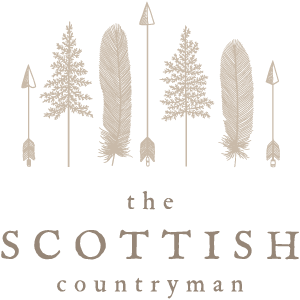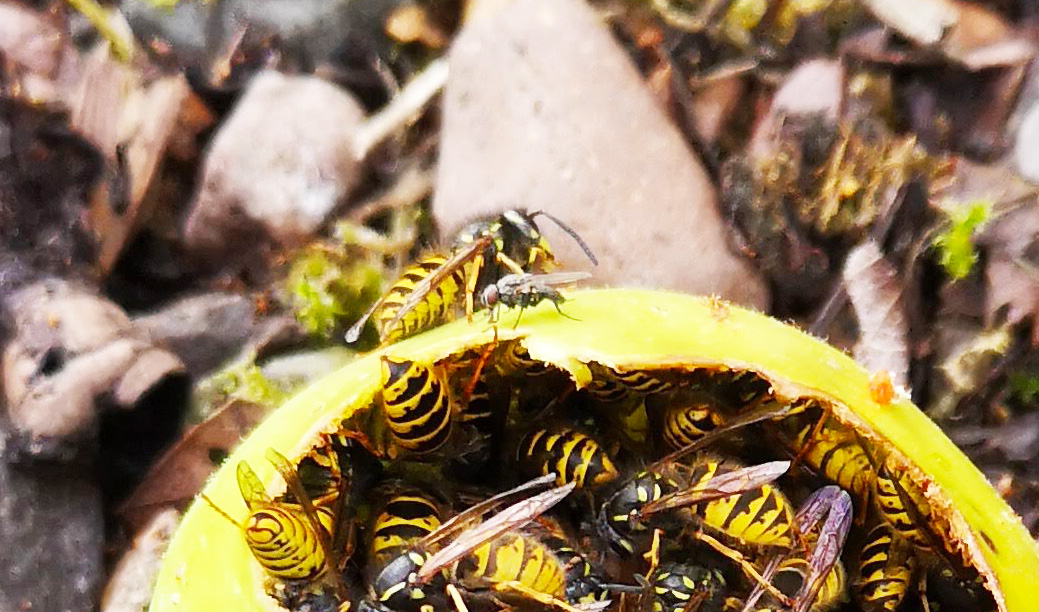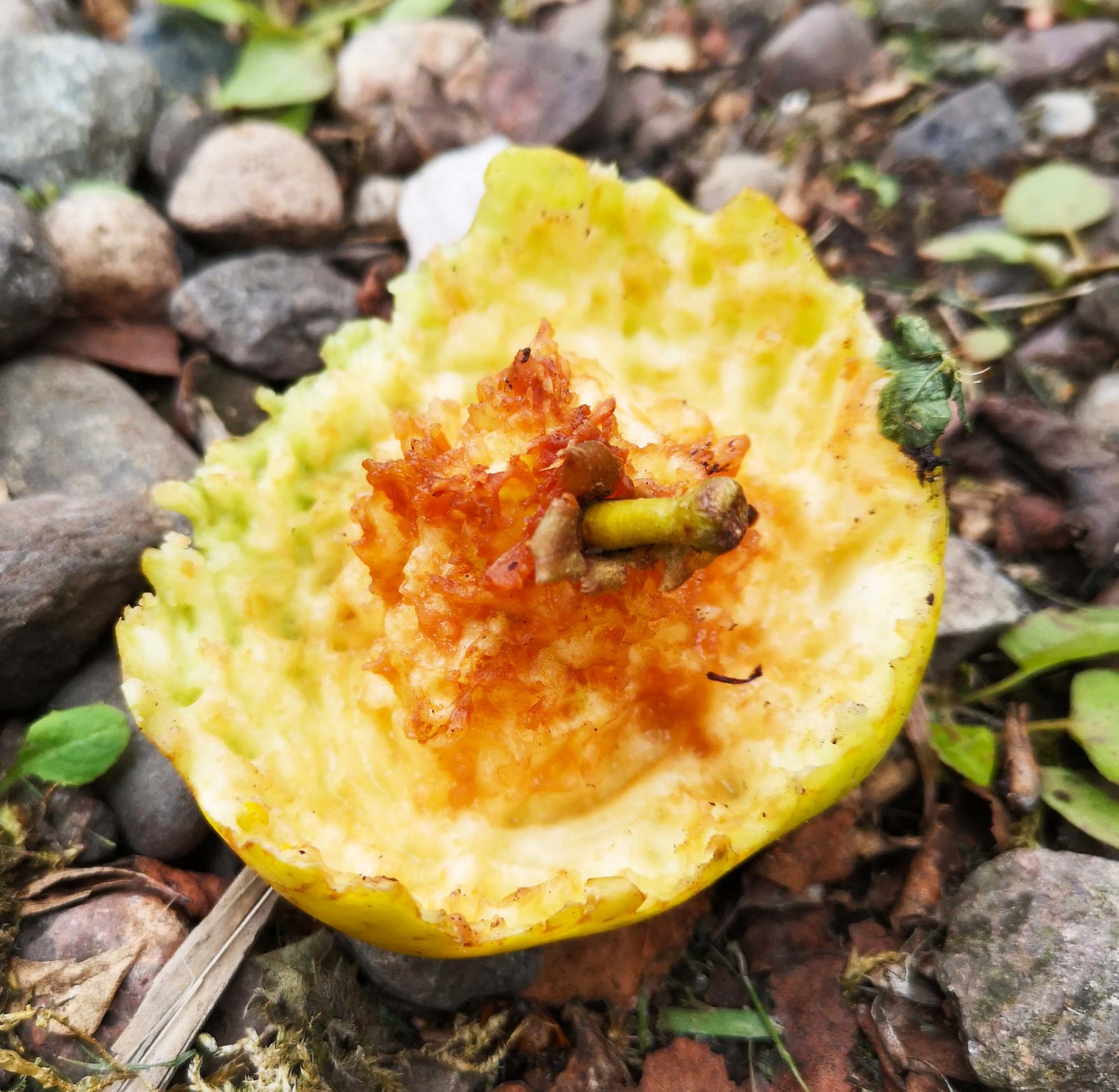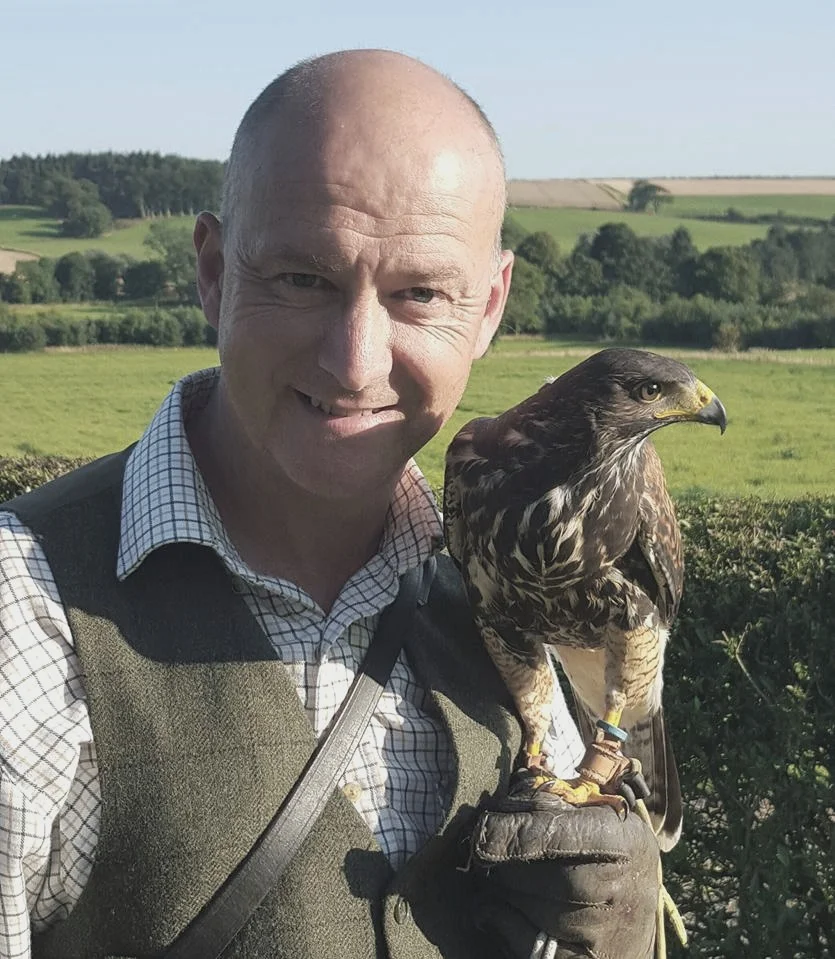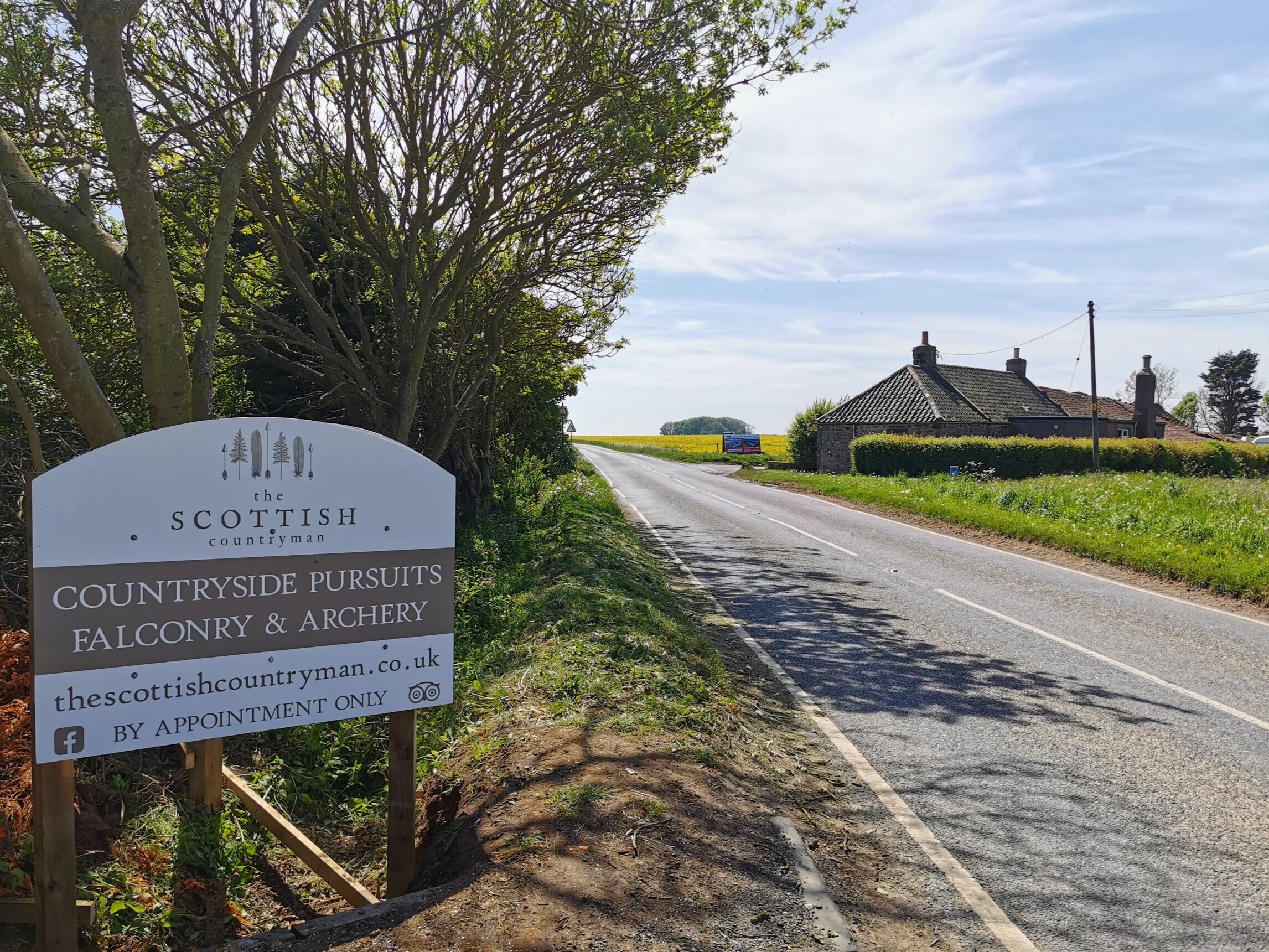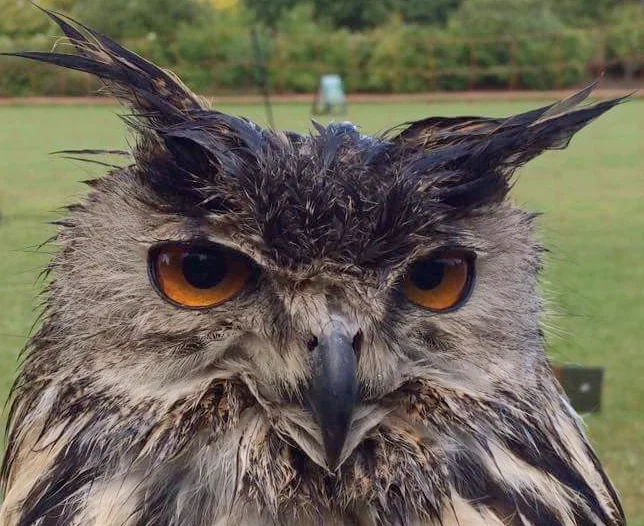What is the point of wasps?
/What is the point of wasps?
Have you noticed the increase is wasp numbers in the last couple of weeks? It seems as though they're everywhere! Buzzing angrily at windows in your office and at home, being pesky at picnics and beer gardens, interrupting conversations, causing us to shudder and shift, squeal and shriek, swat and swear.
It's hard to find anyone who's a fan of wasps - most people loathe them and many have a big fear of them. Is that you? Do wasps make you shudder or shriek? Are you frightened of the pain wasp stings inflict?Frightened that they'll attack and sting you multiple times, and that those stings could even be deadly?
I know - and I get it. But it seems such a small creature to cause such fear and loathing!
I expect that this level of fear and loathing is part of the reason we know so little about wasps. Wasps are mysterious to most of us. Think about it: what do you really know about wasps?
'They sting!'
Okay,... Anything else?
Do you know about the different types of wasps there are and the nests they build? About what wasps eat? And, come to think of it, what eats wasps? How (and why) wasps sting? What makes a wasp's sting so sore? How long do wasps live for? How do wasps raise their young? No idea?!
It's true to say that most people don't know much about wasps at all. In fact, one of Google's most common wasp-related questions is 'What's the point of wasps?' Let's see if we can figure that out in this blog post.
What do wasps do?
You might not think it, but wasps are helpful! Like all creatures, wasps have a purpose - they are a natural pesticide; they cut down the number of pests you have to deal with by hoovering up bugs, insects and animal matter. Sterile worker females forage for insects (including aphids and blackfly) and carrion to bring back to the wasp grubs or larvae growing in the nest.
We've had a colony of Western Yellow-jackets in the font garden this summer. The workers were frequent visitors to Steve's stash of hawk food in the early part of summer, looking for meat or protein to take to the nest.
What's fascinating, however, is that these female wasps feed off a sweet liquid that is secreted by the larvae they bring the meat to. They feed the larvae and the larvae feed them, in return; each gets something from the other: the larvae gets protein; the females get carbs in the form of sugar.
It's only when the wasp larvae have matured - at the end of summer - that you'll suddenly become much more aware of wasps in numbers because the females are no longer getting that sugary secretion from within the nest. The larvae have grown into fertile males and females and left the nest to prepare next year's colony, so the infertile worker females are forced to seek sweet liquids outside the nest. And that's when your juice and ice-cream and flowers suddenly become a magnet for a multitude of wasps. No wonder they're aggressive. To use a runner's parlance, they're 'hangry'!
Because nature is amazing, it just so happens that the timing of 'hangry' wasps looking for sugary food coincides with ripening fruit falling to the ground and releasing ripening, even pungent, sugars. I managed to capture the wasps demolishing an apple near their nest over just a few days last month. Isn't it amazing? And a little twitch-inducing!
Day 1: the wasps break into the apple
Day 2: burrowing right into the apple now
Now that we know all that, let's address the big concern: can you die if a wasp stings you?
Yes, but it's extremely unlikely! Like really rare.
Here are the two ways that wasps stings can be fatal: you can die as a result of receiving too many stings and you can die as the result of an allergic reaction to even one single sting. What are your chances of either?
Firstly, how many wasps stings is too many? How many wasps stings would it take to kill you? Of course it all depends, but the answer is probably more than you'd think.
Generally, it's thought that an otherwise healthy adult can survive as many as 1,000 wasps stings. A THOUSAND stings! Now a thousand stings is certainly night-marish. That kind of experience would be beyond painful and it's obviously a serious level of injury, yet it's survivable. But how often do you hear of anyone being stung even a hundred times? Or ten? Most people that have been stung have suffered a single sting and a few had the bad luck of two or three but I've never heard of more than a handful of times in the one attack. That makes the chances of a multi-sting death are pretty low, wouldn't you agree?
So what about a single-sting reaction?
Anaphylaxis is the extreme allergic reaction that causes the body's defence systems to over-react - to go into shock and, in a few cases, to shut down. It can be triggered by certain foods and medicines, but also by bee and wasp stings. ‘Anaphylactic shock’ happens fast and it's difficult to predict and prevent. It is a terrifying thought but it's extremely rare, in fact it's estimated that less than 0.5% of the population is affected. Records show that fewer than 10 people each year in Britain die from anaphylactic shock resulting from wasp stings. In a population of more than 55 million, that's also pretty low odds.
Statistically speaking, then, we are extremely unlikely to die as the result of a wasp sting. And yet many of us are still afraid of wasps. And even those of us who aren't are still wary when a wasp enters our space. Why? Because wasps are aggressive and they do sting and their stings hurt!
Why does a wasp sting hurt so much?
There are three main problems with a wasp's sting:
A wasp's sting hurts going in but it also has a complex chemical make-up that can agitate the sting site and the surrounding area for days. Wasp stings also include the allergy-inducing component called Antigen 5 that can cause anaphylactic shock.
Each sting acts as a marker or a signpost to other wasps, signalling the sting recipient as a threat and driving more wasps to attack the victim.
The sting is not a once-only option for a wasp. Wasps can sting multiple times because, unlike bees, the wasp's stinger can be retracted and reused and a stinging wasp doesn't die.
The ground nest of our colony of yellow jacket wasps.
How can you avoid being stung by a wasp?
Wasps get riled up by intruders and especially by intruders wearing bright colours (hello, summer wardrobe) or behaving aggressively, so you can minimise your risk of being stung by staying away from wasp nests and not making loud, sudden movements in colourful clothes around wasps. (Less of all that shrieking and swatting, for a start! It doesn't help and it's almost certainly making things worse.)
Most people aren't encountering wasps at their nest site, of course. You're probably not intruding into their space - they're probably in yours. If that's in your house, or at the office, or in a beer garden or at the park, try to stay calm and leave them be. They're likely to move on or find something more interesting than you - something sweet, probably.
That's not to say that you shouldn't get out of the way if you come under attack by a wasp. Because one wasp's aggression is contagious to the others, and one sting encourages more to sting, so you definitely shouldn't stand still if a wasp stings you. Get out of there! But just try not to flail your arms and scream and shout at the same time.
If you do get stung by a wasp, antihistamine is your best bet at countering the effects.
How do you get rid of a wasp's nest?
I know plenty of people have managed to remove nests or bykes for themselves by using one of the many sprays and powders on sale, but for me that's an easy one: just call in the professionals. Here's the thing: wasp nests can be HUGE. By mid-summer, they are likely to contain many thousands of wasps. That's not something you want to unleash and get wrong on your own. It’s also possible that what you think is a wasp is not and it would be tragic to get rid of bees by mistake :-( It happens every year.
The yellowjackets’ nest
The yellowjacket burrow we have may hold as many as 20,000 wasps. It's 5 feet from the house and definitely not something I’d want to stir up! We haven't done anything about it as there hasn't been a reason to - they have just gone about their business.
Once the colder weather comes in, that colony will die out and they won't reuse the same site next year. But if they set up home somewhere that puts us in conflict, or that increases our risk of being attacked to a level that's just not acceptable, we'll get a pest-control pro in to help.
What eats wasps?
It's the cold weather that kills most wasps but they are also predated upon, which always surprises people. In Scotland's countryside, badgers will dig up an underground nest to feed on the larvae. Honey buzzards, though mostly based down south in places like the New Forest, do breed as far north as the Lake District and parts of Scotland, and they raise their chicks on a diet that includes wasp and bee grubs. The densely-packed feathers around honey buzzards' beaks enables them to resist wasp stings and their strong talons help them to excavate wasp nests.
Also, despite the wasp's clear warning in the form of its yellow and black stripes, a danger-sign in nature, other smaller birds are also happy to risk eating wasps, notably blackbirds, magpies and starlings. We had a colony of starlings in the Leylandii hedge this summer, which is just above the wasps' nest and just below the apple tree. Which means bed and breakfast for all!
Other predators of wasps are dragonflies, beetles and moths. Without wasps, these other species wouldn't be able to thrive, which is the whole point of wasps and everything else that makes up an eco-system!
After just 3 days, this is what's left of the apple.
Wasp trivia
There are over 100,000 different types of wasp in the world, and 250 in the UK. As with bees, most species of wasp are solitary but we tend to think of colony wasps such as the Western Yellowjackets as the only kind of wasps.
Wasps have never been popular, even before we had beer gardens and windows! Unlike bees, they rarely feature in place names, pub names or heraldry and they always symbolise aggression, which is why their name is bestowed on military aircraft and ships, rugby teams and angry people.
The Latin name for a wasp is a vespa. Did you just have a moment of enlightenment with that fact? It stopped me in my tracks when I realised! How had I not known that before? (Mind you, it took me until my forties to twig that Eeyore's name was also onomatopoeic.)
Of course! A Vespa! What a perfect name for that stylish little buzzing scooter! Brilliant.
I hope this article at least makes you less anti-wasp and more aware of their benefits to our eco-system. GIve it a like if you found it interesting but, if you have any wasp stories or more wasp trivia, do tell! You can comment below.
Sources
Buczacki, S. Fauna Britannica (2002) Hamlyn, Octopus Publishing Group Ltd, London
Moss, S. BBC The Great British Year (2013) Quercus Editions Ltd, London
https://www.theguardian.com/science/2003/jul/22/medicineandhealth.lifeandhealth extracted 02 September 2018
Images
Photos and video by Deborah Brazendale
Tell me about your interactions with wasps in the comments below. Hate them? Sneaking admiration for wasps? Worse that spiders or not?! Is there another garden or countryside creature in Scotland that you'd like to know more about?
